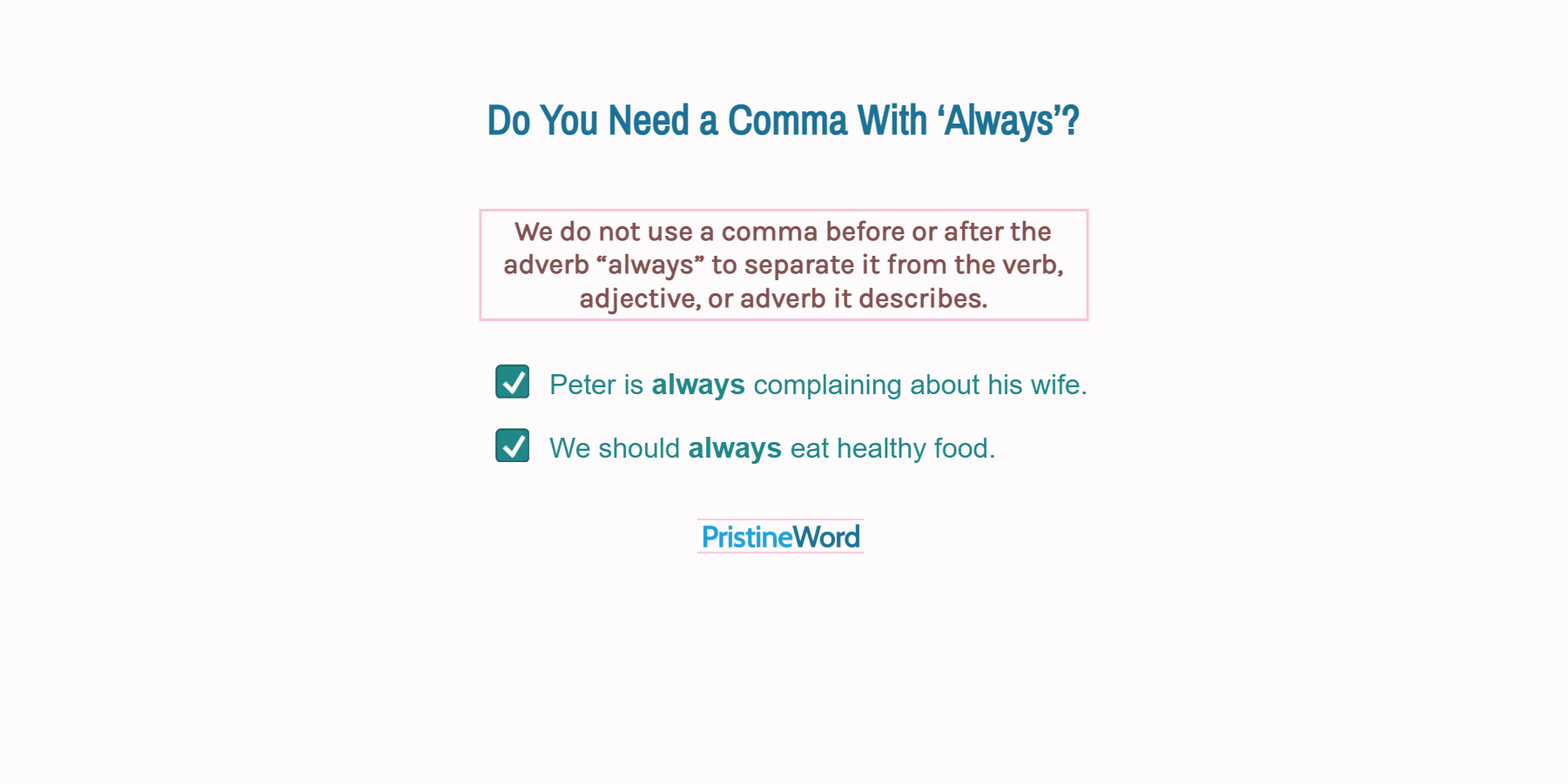We do not use a comma before or after the adverb “always” to separate it from the verb, adjective, or adverb it describes.
We do not use a comma before or after the adverb “always” to separate it from the verb, adjective, or adverb it describes.
Parenting is not always easy.
We should always eat healthy food.
1. Position of the Adverb ‘Always’
“Always” is not as movable as other adverbs of frequency. We typically place it in mid-position:
- After the verb to be (e.g., “She is always happy.”)
- Before the main verb (e.g., “He always thinks ahead.”)
- After the first auxiliary verb (e.g., “I will always miss you.”)
But you can use it at the beginning of a sentence to give commands (imperative sentences).
Always keep your password in a safe, secure place.
“Always” cannot go at the end of a sentence.
2. Can You Place a Comma Before or After ‘Always’?
We do not use a comma to separate the adverb “always” from the verb it describes.
Peter is always playing video games.
There are particular sentence constructions, however, where you may use a comma before or after “always”.
Robert is complaining, as always, about his wife.
Note that “as always” adds nonessential or parenthetical information in the example above. This phrase could be easily enclosed in parentheses, so it must be surrounded by commas.

